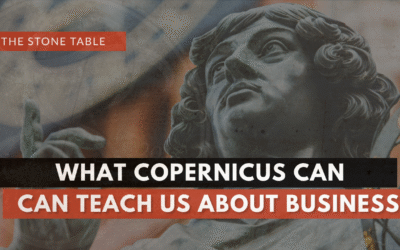Workism and Culture

Workism is a dense cultural influence in our world today. It speaks to the American Grit – a tenacity that hard work, commitment, and ruthless perseverance can accomplish anything – a true capitalistic romance.
Workism filters into our hub display with messages such as “hustle harder”, “grind”, and “fueled by coffee”. It’s not bad or wrong to desire to accomplish something and leave a legacy – I think that’s an innate human desire – but the method, motivation, and purpose for which you do it is most important.
Workism is a present and active force in our culture today, a synonym for the hustle culture.
Cultural Values in Workism
If you are a member of any social media platform, literally any of them, or are active in the modern world, you are aware of this hustle culture breed of workism. This, as Dr. Bryan Robinson, Ph.D., of Psychology Today states, looks like this,
“You’ve bought into the idea that it’s cool to be “always-on” and to push yourself to the max each of the 1,440 minutes of the day. You boast about no breaks. No leisure. No weekends off. No vacations. No sleep or exercise and practicing “gobble, gulp, and go” or skipping meals altogether,” (Psychology Today, 2019).
This is the cultural identity of those practicing workism today – a cultural identity that has found its roots in the depths of a capitalistic, entrepreneurial whirlwind of work, work, work.
An interesting concept within workism is that while it derives its base off capitalism, it also drives its power off our willingness to obey it. The more that practice this self-glorification, the more people want to be a part of it.
This is the influence of not only cultural values that are found in workism, but also the power of the social media influence – showing people what “real” hustle looks like. Yeah, you get em, Karen.
But workism is more than an Instagram shine – it’s true American grit put into worship. Yet, what we are worshipping as followers of this new hustle culture is not God, but our own work. We become subject to our deadlines, projects, hours, and opinions of our peers. This is what workism can do to us.
Dr. Robinson continues in saying,
“When the hustle culture drives you, you unwittingly relinquish your personal power and become a slave to internal and external pressures such as deadlines, work demands, or pleasing friends and loved ones,” (2019).
This is the power of workism; a subjection of oneself to mute idols in work, opinions, and empty definitions of identity.
Yet, in the US, we worship those who “constantly” are working, “constantly” on the go, and “constantly” “making it happen”. I use quotation marks because… are they really living everything they post on social media?
In the global West, and especially in the US, we value creating our own life. We value independence, working hard (“the grind”), and being the authors of our own destiny. That is a value system that workism strums heartily in our culture today.
Trending, Glamorous, and Congruent
The concept of working long hours, hustling endlessly for your dream, and the near-and-dear “rise and grind” mentality have long stood in the waters of North American prosperity. We live in a flush nation, for the most part, one that gives us the opportunity to do almost anything we want to at almost any time [excepting some necessarily notable cultural statistics in ethnic, racial, and gender disparities in both educations & incomes – see here and here].
Today, we find workism to be glamorous. We see the coffee mugs scribbled with “hustle” and “more caffeine” and drive our sense of value & determination from an overdose of refined, processed coffee and sugar into a work-life misbalance where work takes the brunt of our identity, time, and treasure, leaving the remnant to be forsaken in the home, family, and self-care aisles.
We, the hustle-mode-activated suitors, are interested in what can get us the most glamor, visibility, and acceptance as hard-working individuals. We constantly, incessantly post about how long our days are, how hard we work, and how we are longing for time off, yet never take it. Workism drives this sense of toxic determination – an “I must work” appeal to the sense of identity found in working our hearts out at something.
Workism is not working too hard or making progress in your career or vocation, it is the sideways step that believes your identity is found solely in your work, hustle, and grind. Workism believes that you are not inherently valued, but that your productivity embeds value in you. This is congruent with the American idol of work.
While this workism & hustle culture seems unlikely to change anytime soon, there are indeed pockets of hope, and even companies that advocate for rest for their employees.
This gives us a new idea of what could be trending in the future – possibly a chance to see our culture evolve into something more centric to God’s intended creation.
Moving Out
There is no escape from the view of workism in our culture today – it is everywhere. From Snapchat stories of servers putting their cash tips out there to white-collar workers boasting about their long hours in the solitary cells of their cubicle, we are searching for value. We are searching for what makes us feel seen, heard, and appreciated. Unfortunately, we are searching in the wrong places.
Workism echoes a cry in our hearts to be treasured, to be cherished, and to be understood. We want to esteem ourselves worthy of these things, but we reach to the opinions of others, including social media posts and influencers, and assume these facades of brand representation and “likes” portray what will ultimately deliver to us the deepest desire of our hearts: to be known.
Workism is not simply an over-value of work, but it is also an undervalue of self. This practice embeds the belief that we are not made for more than work but are simply made to search out our sense of worth in the world. This sense of worth comes through affirmation, the approval of others, and we can spend our entire lives looking for it. This approval, this affirmation of who we are, is sought out from our peers and the cultural values of our society today. We constantly look to others to find out who we are… because, at the end of the day, we don’t really know.
We allow the world around us to not only shape us, but to define us. Notably, there is a clear distinction between “shaping” & “defining” – one influences, the other controls.
Something is broken. Inside of us, something is broken. It’s missing something – we are missing something. Does our sense of identity, purpose, and value really come from the fleeting moments of what we want to look like to others?
This is what workism promises. It promises to us that we are valued only in our work, our productivity, and our ability to humanly grind for decades on end with no regard for our longevity, health, and family. This is the workism ideal, the American dream, and we live in the wake of it today.






